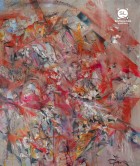Tell us about this story: its inspiration, your writing process, your own relationship to pigeons …?
Growing up, my mom and I always talked about what it would be like to be a bird. I thought being able to fly and go wherever you want would be liberating. This story came to me at a time when I was generally annoyed with the human species, which was frustrating, because I love humans and the tenderness of us. I figured looking at humanness through the lens of an animal might be a relief. The human character in this story is very unaware and the bird uses that to get free in a different way. The pigeon achieves freedom through being grounded (something I’m working on); I ended up just wanting it to be happy in its new form. I like pigeons! I don’t like when they get all up in my face, but I respect them. They’re so brazen. I bet they hate us more than we hate them and I vibe with that.
The ending caught me by surprise—I didn’t expect to find it so moving. There’s an emotional layer to this story.
I like the idea of past and future lives, the changing of the body but retention of the soul. How does it feel to be born again into something that’s not this body, that’s not this life? Sometimes I crave an entirely different universe or reality. It’s why I like movies like Shinkai’s Your Name and Miyazaki’s Spirited Away. Do you breathe different when you feel different? How do you adjust your sleeping position? Coping with change is beautiful, but you don’t ever want to forget who you were in the beginning, because your core is still there. That’s why my pigeon looks back to appreciate its new life and understand the differences humans share when it comes to morals. This bird picked this human for a reason—maybe sensing an innocent desire to be something else.
What does flash fiction mean to you?
My first love was novel-writing, which is to say I wrote a novel when I was nine or ten and it will never see the light of day. (If you really want to know, it’s about six children who fall through a hole in the earth and defeat an evil twin-sister queen while falling in love with each other). I still want to write one, a better one, but for now I find short stories are my ticket into the regular practice and freedom of writing.
Flash fiction is a challenge because I see so much beyond a story and I want to write about all of it. But it’s that challenge of editing that makes it really special. I’m so inspired by writers like Sennah Yee, Megan Pillow Davis, and Cathy Ulrich. Their prose packs so much energy and emotion into a few scenes. I’m still young and I’m starting to appreciate micro-investigations, the small things about people and life that make living so special. I’m obsessed with the unique habits of others, quirks, mannerisms, and when I say “others,” I mean nature as well as people. Nature has its quirks, too: I tried to get at with this piece.
Do you have certain themes you find yourself returning to?
Commonplace tenderness. My stories always centre around understanding how humans survive, despite and because of that tenderness, and why we choose to keep ourselves alive when we can be so fragile. So much of living is trying to find genuine beauty or achieving some kind of stability. I try to bring that struggle into everything I write.
You founded an arts journal!
I founded Double-Take Mag to create a safe space for young/emerging creatives to showcase their work. I wanted to make it accessible—our submission process is based on merit. I don’t necessarily enjoy the power hierarchy the arts industry can create, and I know from experience it can be hard to navigate for young people like myself. With Double-Take, I am trying to make folks feel heard and appreciated for the artists they are. I want everyone to be proud of what they do and be confident in their abilities, even if they are just “emerging.” I don’t believe you’re ever just an emerging artist— when I was less confident I used that word a lot. I think it actually belittles what you’re capable of. You are a writer, a poet, an artist. Never sell yourself short.
How did you get into writing?
I’m from an Indo-Guyanese family that loves to tell stories. Some might call it gossip, but a lot of this shooting the breeze is recalling something very specific and talking about it over and over until it changes somehow. A constant broken telephone I stopped trying to fix a long time ago and embraced instead. Coupled with my shyness, that’s how my written stories were born. I guess for every writer, writing is a kind of escape and that’s the way it was for me, too, early on. But it became a steadier practice, something I did to achieve as well as relax, and that’s where I am now: not just an escape, but a mode of production that gives me purpose. I also freelance now, so I’m writing about real-life situations a lot.
Anything else you’d like to say about the story/yourself as a writer …?
My dream is to be read by everyone I love, or to be written about, or to live in a world where production doesn’t define your meaning and money is not such a barrier to pleasure. My other dream is for everyone to follow me on Spotify @Hadiyyah Sara because I have to have made over 120 playlists for a reason. Do me this honor, and you will have a very special place in my heart. Most importantly, I hope this story gives somebody hope or makes them feel like the tender human they are for a few seconds.



 The core workshop of SmokeLong Fitness is all in writing, so you can take part from anywhere at anytime. We are excited about creating a supportive, consistent and structured environment for flash writers to work on their craft in a community. We are thrilled and proud to say that our workshop participants have won, placed, or been listed in every major flash competition. Community works.
The core workshop of SmokeLong Fitness is all in writing, so you can take part from anywhere at anytime. We are excited about creating a supportive, consistent and structured environment for flash writers to work on their craft in a community. We are thrilled and proud to say that our workshop participants have won, placed, or been listed in every major flash competition. Community works.